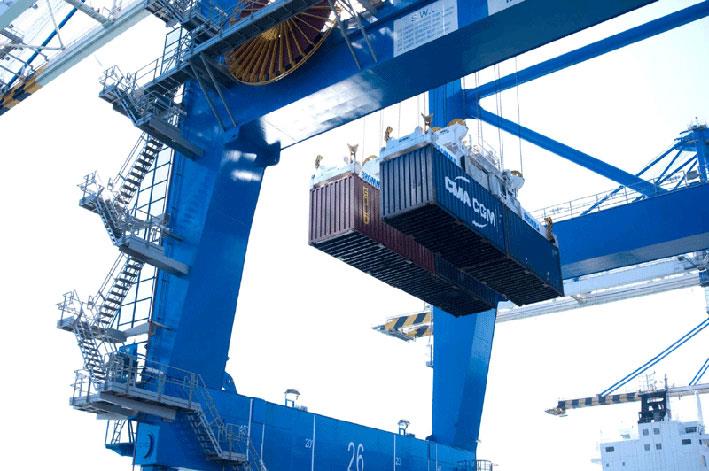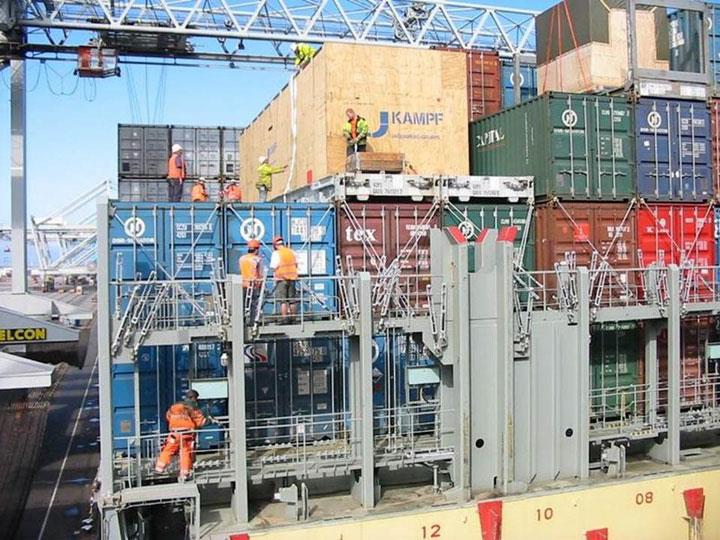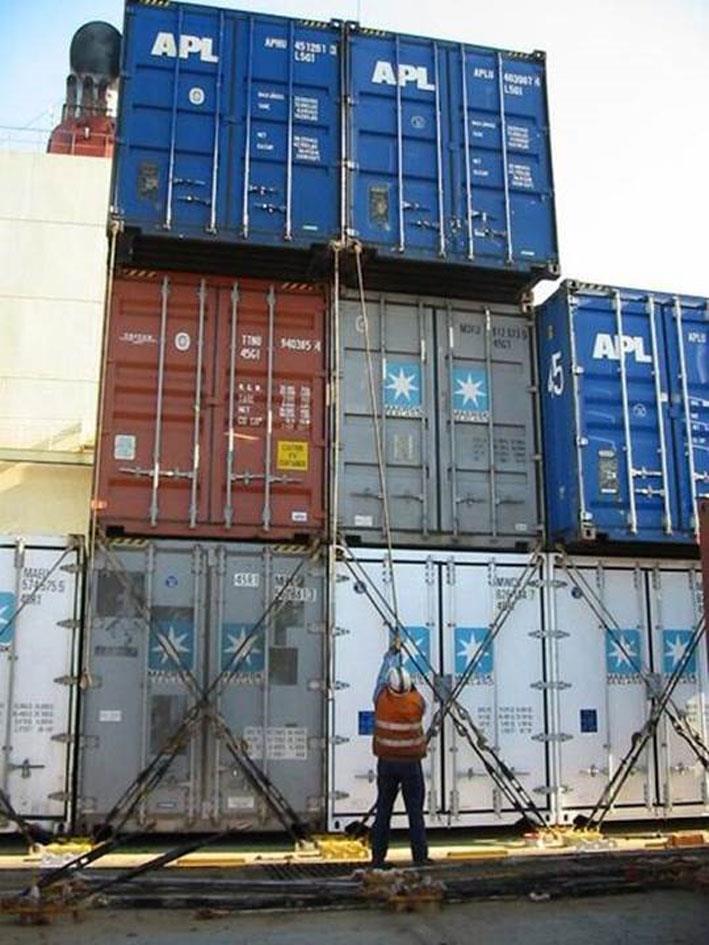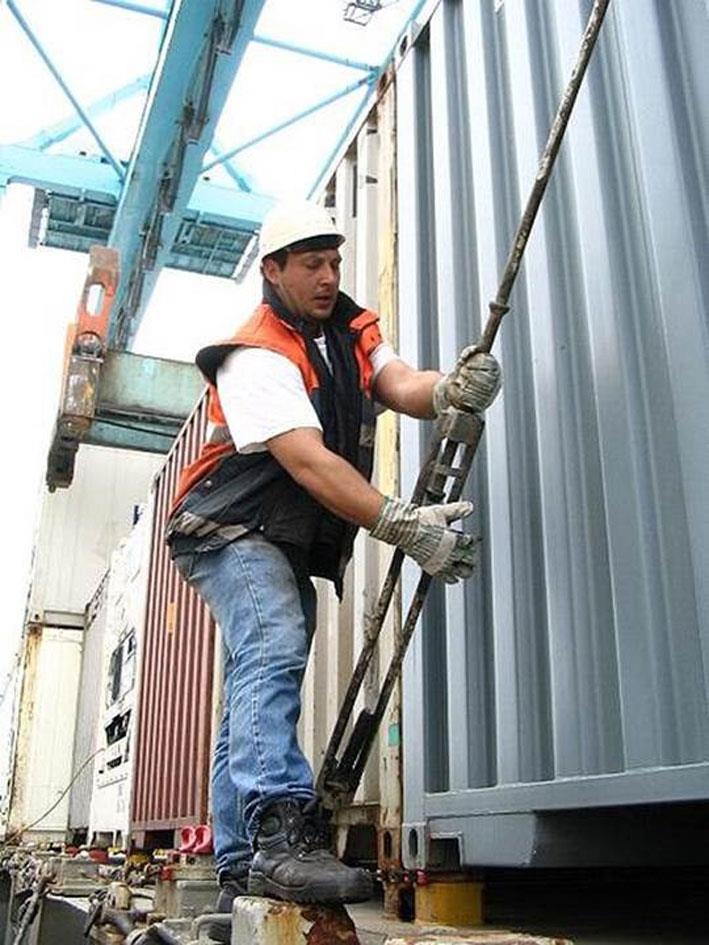“There’s this image out there that port workers are an unruly lot. Truth be told, the job is a very strenuous one, tough and raw as it gets. But what people do not know is that port workers today are an extremely organised group of workers, much more organised than what the impression could be. Indeed, we have come a long way,” says Ing. Ryan Fava, president of the Malta Dockers Union.
A mechanical engineer by profession, Fava ‘inherited’ his port worker job from his father in 2010. Although he chose to concentrate on his engineering career, being a licensed port worker remains a source of pride for him.
“Engineering is my passion but although I chose to work as an engineer, I consider port work a unique privilege and always felt that there was a lot I could offer to bring this profession forward. My colleagues here at the port saw this in me and pushed my nomination as a Shop Steward, which eventually led to my role as President of the Malta Dockers Union in July 2014, a post which gives me great responsibility.
“The Malta Dockers Union was established in 2006 by the late Joseph Saliba and his committee. My job was to safeguard continuity to the great job done by those before me.”
During his term, Fava managed to diversify and restructure the way the union operates and introduced a more professional outlook to port work in support of higher standards which are now benefitting local industry.

“The fact that we are a regulated body, that all our members are registered licensed port workers regulated by the Port Ordinance Act and local legislations, is an advantage because it gives us the strength to push for reforms that make our job better, more efficient and most importantly, safer.
“The port worker has a very laborious job in a high-risk environment, always exposed to the elements, 360 days a year and with no paid leave. It is a very strenuous job where commitment, hard work and attention to detail are the order of the day. Today, times being what they are, technology is increasingly shaping most industries, and ours is no exception. Therefore, we have to keep up with these modern-day demands to secure the two most important things for our workers: efficiency and safety,” Fava said.
He lists the fast-changing maritime technologies and work practices as one of the main challenges in port work.
“Modern equipment and better vehicles are important but one of the union’s firm commitments is to invest more in workers’ training, especially if we can give port workers the opportunity to train on new technology. Therefore, we are currently carrying out work on our offices where we will soon launch our new Training Centre for port workers. This will be an in-house dedicated training centre for our current port workers and the young aspiring ones where they can learn more about safer handling of equipment and experience the advantages of new technologies through simulators.

“Training will remain high on the agenda. Besides our 380 licensed port workers, the Malta Dockers Union is also responsible for another 235 self-employed truck drivers. They too will benefit from our training programmes. In fact, as from this year, the MDU is organising courses recognized by Transport Malta for terminal operators and prospective port workers. These consist of induction courses, 40-hour practise and a final exam which leads to official certification.”
One of the union’s recent achievements was when a group of truck drivers received training that allowed them to work on ro-ro vessel operations for the first time. At present, the union is collaborating with several oil and gas companies to organise training for those workers who are mostly involved in the handling and transport of oil and gas cargo.
“But the reality is that port workers today handle any type of cargo, from raw materials and conventional cargo, which make up the daily bread and butter commodities, to huge capital projects. Such projects handled by Malta’s port workers included the Kappara Project, the Power Station, the Pipeline Interconnector, and oil drilling operations. A good portion of our workers are also deployed at the Freeport.”
The MDU holds service level agreements with Valletta Gateway Terminals in Marsa and Malta Freeport Terminals, agreements that regulate and harmonize the work done by their respective workers.

The extent of how organised port workers are is evident from the management of the Port Workers Pension and Contingency Fund, a fund managed by a Board, set up directly by Cabinet in 1973 when the country started introducing the cost of living adjustment.
“Back then, port workers had no access to this system or to the quarterly government bonus. This was when they decided to establish this fund to be able to cater specifically for port workers. In time, the Fund started providing insurances in case of injury, and medical cover. Today it also finances the purchasing of safety gear and protective garments. Port workers register every year to be recognised as part of the Fund which also supports them in case of sick leave and injury on duty.”
Today, the Malta Dockers Union is also affiliated with the International Dockworkers Council (IDC) where members share expertise on ongoing developments in the industry and assist each other on special projects.
“When you are a port worker, you never forget your roots. You think of the hardships your father, and his father before him faced. You want to live up to them. As a Port Workers Union, we have come a long way and achieved a lot. But the port worker’s biggest achievement happens every day, when he returns home to his family, having faced another day of tough work and huge risks.”
